Is Free Will Real or Are We All Determined?
by Brandon Vogt
Filed under Christianity and Science

Throughout Sean Carroll's best-selling book, The Big Picture: On the Origins of Life, Meaning, and the Universe Itself (Dutton, 2016), Carroll seems comfortable holding two apparently contradictory views. This has been show throughout our review series. For example, he's fine both believing that causality is illusory (at the fundamental level of reality) and true (at the macroscopic level.) We see this again in the chapter he dedicates to free will, which begins with this assessment (emphasis... Read More
Why Does the Universe Exist? Atheist Physicist Sean Carroll Answers…
by Brandon Vogt
Filed under Christianity and Science, Cosmology
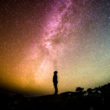
I have to admit, when I first opened Sean Carroll's new book, The Big Picture: On the Origins of Life, Meaning, and the Universe Itself (Dutton, 2016) I immediately flipped to chapter 25, titled "Why Does the Universe Exist?" For many thinkers, ancient and modern, this is the philosophical question: why is there something rather than nothing? Your answer to this question drives your answers to most other big questions, including those about God, meaning, morality, and more. So I was... Read More
The Power and Danger of Bayes’ Theorem
by Brandon Vogt
Filed under Christianity and Science, The Existence of God
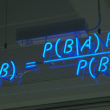
I've noted many flaws and points of confusion in Sean Carroll's new book, The Big Picture: On the Origins of Life, Meaning, and the Universe Itself (Dutton, 2016), but one of the strongest sections is its explanation of Bayes' Theorem. The Theorem is a quantitive way to express confidence in certain beliefs. It requires assigning credences (or probabilities) to events or statements, and then tweaking them based on new information. For example, suppose you're wondering whether a randomly... Read More
Is the Passage of Time Real or Just an Illusion?
by Brandon Vogt
Filed under Christianity and Science, Cosmology

One of the main targets of Sean Carroll's new book, The Big Picture: On the Origins of Life, Meaning, and the Universe Itself (Dutton, 2016), is causality. Like many naturalists, he sees where the causal chain leads—a series of contingent causes demands a necessary First Cause. So if you want to avoid a First Cause, you must get rid of causality. As discussed in an earlier post, Carroll's first attempt appealed to the conservation of momentum. It wasn't clear how that principle... Read More
Sean Carroll, Determinism, and Laplace’s Demon
by Brandon Vogt
Filed under Atheism, Christianity and Science, Cosmology

Today we continue our series looking at physicist Sean Carroll's new book, The Big Picture: On the Origins of Life, Meaning, and the Universe Itself (Dutton, 2016). After exploring whether the universe needed a cause to get started, Carroll next turns to the topic of determinism: is reality determined or free? Laplace's Demon Carroll's answer relies on a famous thought-experiment involving "Laplace's Demon". Pierre-Simon Laplace was an accomplished French physicist and mathematician.... Read More
Is Sean Carroll Correct That the Universe Moves By Itself?
by Brandon Vogt
Filed under Atheism, Christianity and Science, Cosmology
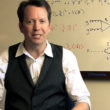
Many theists, including myself, believe that some of the strongest arguments for God rely on the logical need for a First Cause of the universe (or First Mover, depending on which argument you use.) This sort of argument goes back at least to Aristotle, who thousands of years ago suggested that, "Everything that is in motion must be moved by something" (and by motion he meant any change whatsoever, not just locomotion, or spatial change). However, physicist Sean Carroll thinks Aristotle... Read More
The Big Problem with Sean Carroll’s “Poetic Naturalism”
by Brandon Vogt
Filed under Atheism, Christianity and Science, Cosmology
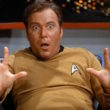
Today we continue our look at Sean Carroll's anticipated new book,The Big Picture: On the Origins of Life, Meaning, and the Universe Itself (Dutton, 2016). Carroll starts his book by diving right into the deep end. The first chapter in the first section concerns a huge topic: the fundamental nature of reality. Carroll explains that philosophers consider this the domain of ontology, but then he offers a strange definition. Ontology, he says, is "the study of the basic structure of the... Read More
Why Sean Carroll’s “The Big Picture” Is Too Small
by Brandon Vogt
Filed under Atheism, Christianity and Science, Cosmology
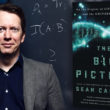
Physicist Sean Carroll has a high reputation in the scientific and atheist communities, and it's well-deserved. He's produced several acclaimed books on the philosophy of time, the Higgs Boson particle, and general relatively. But none of his past books has been as daring or sweeping as his latest project, The Big Picture: On the Origins of Life, Meaning, and the Universe Itself (Dutton, 2016). One reviewer for Nature began by stating, "I don't think I have ever read anything with... Read More
5 Reasons Why the Universe Can’t Be Merely a Brute Fact
by Karlo Broussard
Filed under Cosmology
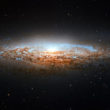
Can the universe be a mere brute fact? Can we say, “The universe just exists and that’s that—it has no explanation at all”? Sean Carroll, a theoretical physicist at the California Institute of Technology, thinks so. In a recent interview at Salon.com, Carroll says, “There’s certainly no reason to think that there was something that ‘caused’ it; the universe can just be.” Carroll is in good company with such an assertion. Bertrand Russell, the late British atheistic philosopher,... Read More
Why Wouldn’t God Perform More Miracles?
by Karlo Broussard
Filed under The Problem of Evil

If God is a God of miracles as theists claim, then why doesn’t he perform more to stop evil? I must admit this is one question I’ve wrestled with in solidarity with my atheist friends. My initial response is to recall the words of the prophet Isaiah: “For my thoughts are not your thoughts, neither are your ways my ways, says the LORD” (Is. 55:8). While I acknowledge this as true, it leaves me dissatisfied. As a Christian I believe, with St. Paul, that God “works for good with... Read More






